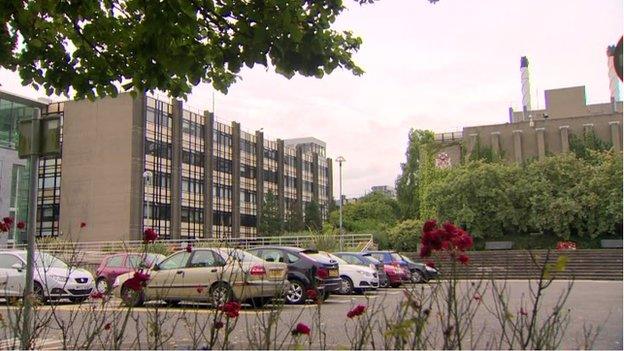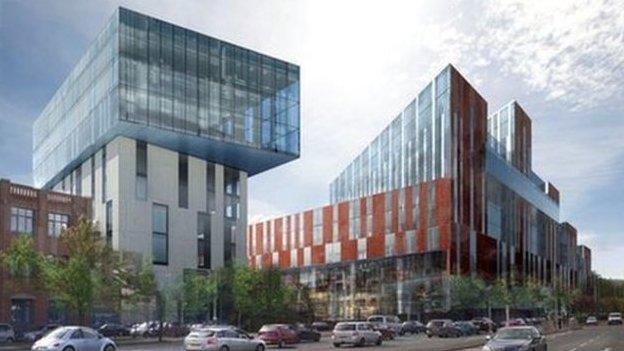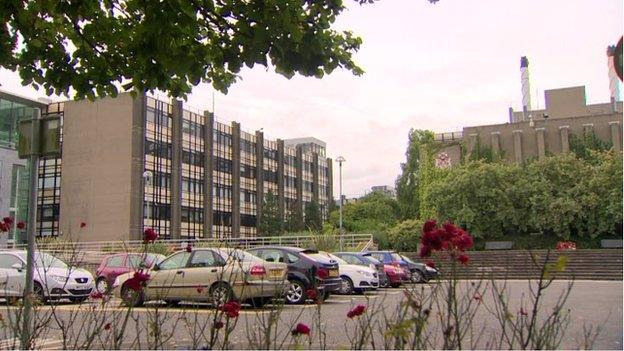Ulster University plan for 600 homes at Jordanstown campus is rejected
- Published

The university said it was disappointed at the decision
A plan to to build 600 new homes on the site of Ulster University's Jordanstown campus has been rejected by Antrim and Newtownabbey Borough Council's planning committee.
A village centre, relocated playing pitches and a research and development park also formed part of the proposal.
Outline planning permission was rejected by the council committee on Monday night.
Ulster University said it was unhappy at the decision.
Councillor Tom Campbell said the university failed to properly consult with local residents
"The university is extremely disappointed at the refusal of its outline planning application by Antrim and Newtownabbey Borough Council especially given the many months of constructive engagement with the planners that preceded this application," a university spokesperson added.
"The university will now review its options on the most appropriate way forward for the development."
In refusing the planning application, the council "considered that a quality housing layout had not been demonstrated with the proposed development of 600 houses, failing to respect the context of the site, and its specific features and constraints".
It said it thought "the development as proposed would have a negative impact on the parkland setting at the university site, would reduce the level of planned open space and result in the loss of a significant number of protected trees at the site".
It added that it was determined "that all of these factors would adversely affect the character, amenity value and biodiversity of the site".
'Overspill parking'
The council said the proposed development "was also considered to adversely impact the setting of the listed Dalriada House and the nearby listed gate lodge".
Concern was also expressed regarding the reduced parking at the existing student accommodation and the FireSERT/Research centre which it said had been retained in the plan.
"With parking reduced, overspill parking could occur in proposed residential areas within the scheme causing problems for any residents," the council spokesperson added
"In addition, insufficient information was provided on several issues that could impact on the principle of development on parts of the site."
Alliance Party councillor Tom Campbell said the university had failed to properly consult with local residents about its plans.
"This is a message to any applicant that under the new planning regime if an applicant with a development of this size wants to seriously consider getting a planning application through, then they have to meaningfully consult with local residents," he said.
"What this university did in this particular case was a lamentable exercise in consultation."
- Published24 April 2015

- Published5 February 2015
